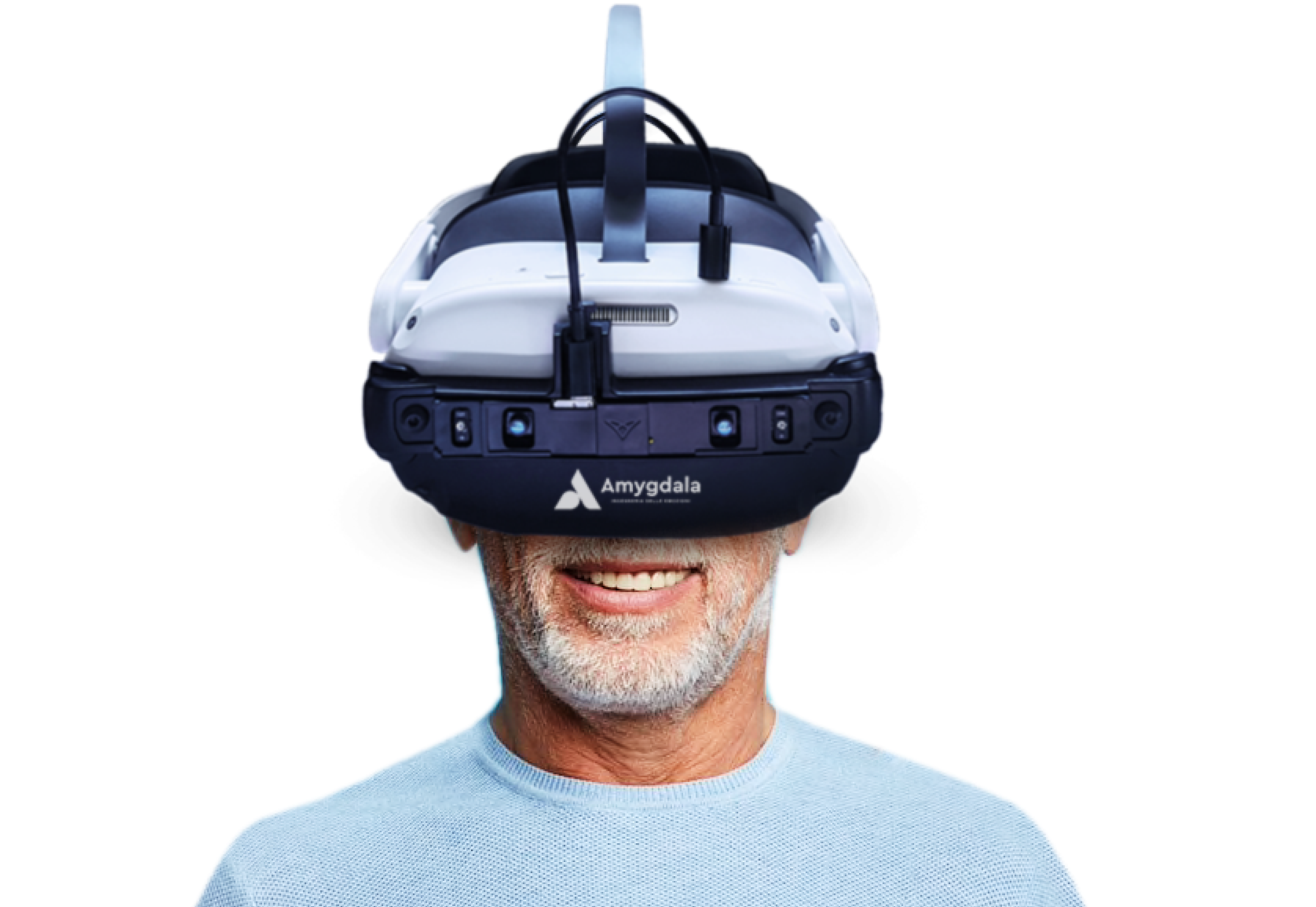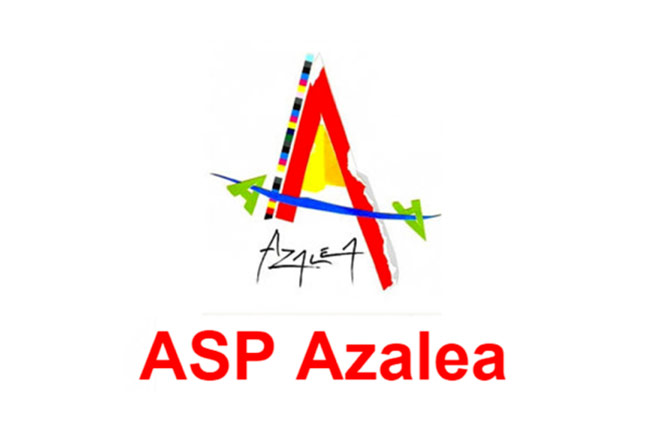
The project
Amygdala develops devices consisting in Virtual Reality hardware and software for the rehabilitation of people suffering from neurodegenerative pathologies.
Immersive technologies have been shown* to increase the efficacy of rehabilitative exercises, since they help enhance patients’ motivation and emotive participation.
At the same time, they provide the healthcare provider and caregivers sophisticated analytical and control tools along the patient’s rehabilitative journey.
The device is also an optimization tool for the care provider, because it allows a single operator to oversee rehabilitation of multiple patients contemporaneously.

![]()
The device
The solution consists of a Virtual Reality headset with hand tracking sensor, a mobile device for the operator/caregiver, a software residing on a server to collect data and control parameters.

Virtual Reality visor:
A patient wears the device and becomes immersed into rehabilitative scenarios
Mobile device:
The operator is able to oversee patient’s performance, check against prior results, modify routine’s parameters in real time (speed, motion range, object distance, etc.)
Application server:
Software collects performance parameters, permits display of patients’ past performance and allows operator to select exercises and applicable parameters
Rehabilitative scenes
Mood Stabilization
Immersion in natural sceneries as a therapeutic setting has been shown to favour patient mood stabilization, with positive effects for both the patient and the care facilities.
Advantages for facilities, operators and patients
For the facility
- Organisation: a single operator can manage rehabilitation for multiple patients contemporaneously
- Communication: the facility may attain a position as an innovator
- Revenue: service could conceivably be offered and billed as optional
For the operator
- Personal growth: achieve new competencies with innovative care tools
- Motivational: get introduced to new activities and routines
- Management: optimise rehabilitation schedules and result monitoring
For the patient
- Emotive level: 'leave' the constraints of their physical space and travel through wonderful scenarios
- Functional level: go through rehabilitative exercises playing effortlessly
- Motivational level: experience greater incentive to participate in exercises

Our experimentation

Cooperativa La Meridiana
Il Paese Ritrovato
Via Casanova, 33 angolo viale Elvezia
20900 Monza (MB)

ASP Azalea
Corso Matteotti, 124
29015 Castel San Giovanni (Pc)
Clinical Studies
Over the last few years, many international scientific institutions have run trials that demonstrate the efficacy of Virtual Reality within rehabilitative contexts:
CONTACTS
info@amygdala.care

Virtual Reality for cognitive, motor and psychological rehabilitation.
info@amygdala.care
